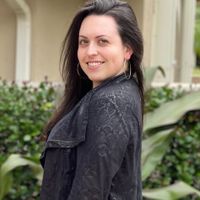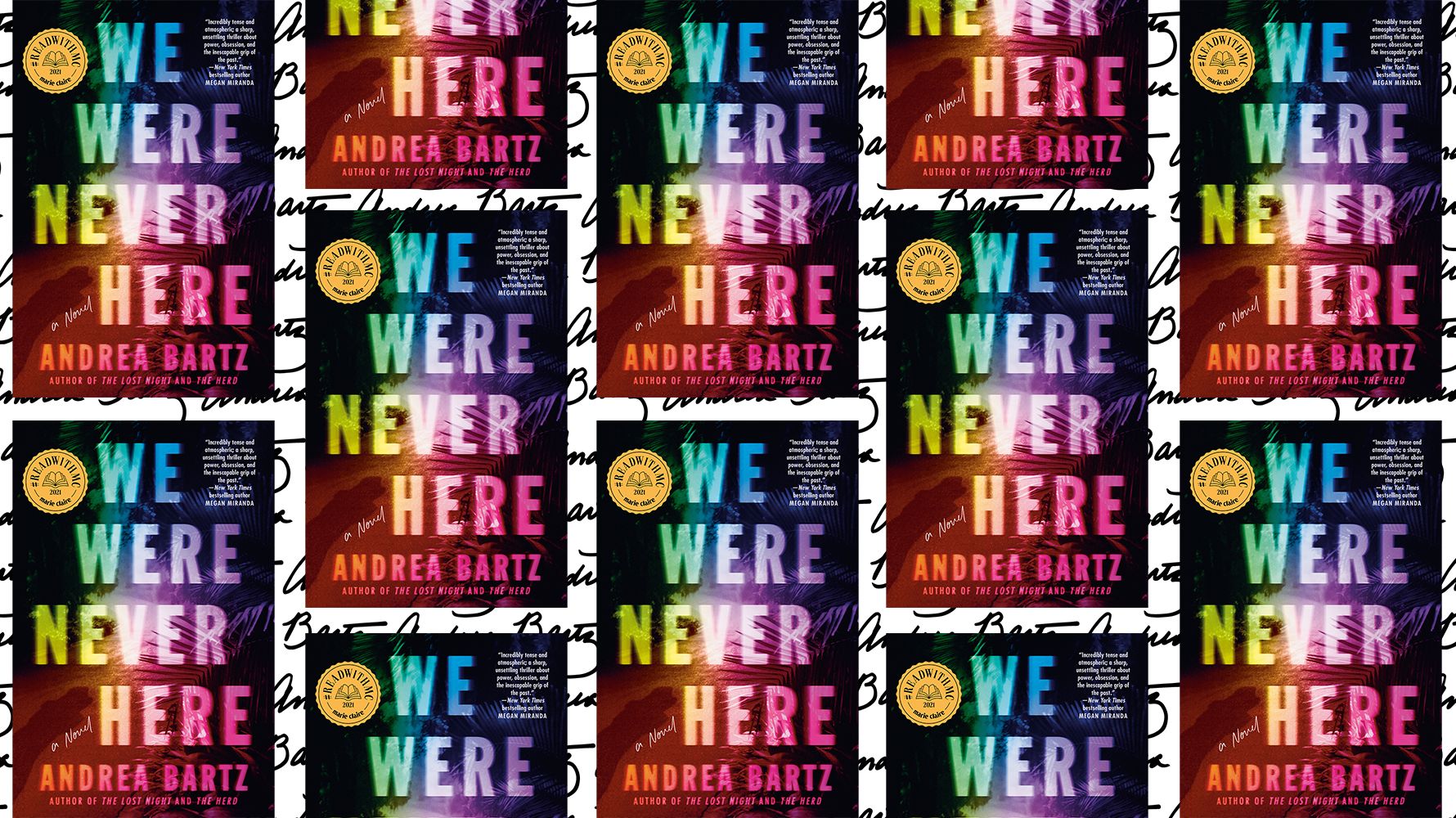Joanne Ramos Wants 'The Farm' to Make You Feel Uncomfortable
Here, author Joanne Ramos discusses her debut novel, 'The Farm,' and what it really means to have access to privilege and wealth in America. 'The Farm' is Marie Claire's June #ReadWithMC book club pick.


Welcome to MarieClaire.com's Q&A; author series—the spot where we ask the #ReadWithMC author-of-the-month five burning questions about her latest book. In June, we're reading The Farm by Joanne Ramos. If you're interested in the novel and looking for some friends to talk about it with, find out how to participate in MarieClaire.com's interactive monthly book club here.
Joanne Ramos, 46, didn't understand what privilege meant until she found herself sitting in a fiction writing workshop at Princeton University. As a 19-year-old work-study student from Wisconsin who'd arrived in the U.S. from the Philippines when she was six, heading to the Ivy League campus filled with "wealthy kids who never needed to work" was a far departure from the "big, loud, clamorous, nosy Filipino family" she grew up with. Her parents had always taught her, In this country, you can make it. You just have to play by the rules and work hard. And that’s what great about America—so that's exactly what she did. Except when she signed up for that writer's workshop, she was under the impression that you'd learn how to write...not have your work publicly critiqued in front of the rest of the class. She panicked. "I was like, Oh my God, that girl went to a boarding school. She must be so smart. Oh, her story is so good. Oh, he went to some fancy New York school!," recalls Ramos. "I felt like I didn’t belong at that table, so I made up an excuse and dropped out of the class."
Ramos never wrote fiction again. That is, until she decided to publish her debut novel, The Farm, more than two decades later. It took a year and a half of writing "really crappy short stories about inequality and baby nurses and dog walkers to rich people," plus an additional three years of self-made edits, before she finally completed the story she'd send to agents. In it, Jane, a pregnant immigrant from the Philippines desperate for a better life for her family, finds herself at a luxury surrogacy facility in Hudson Valley. The catch? You can't leave the grounds, every move you make is watched, and you must produce the perfect baby.
Though the book is technically classified as fiction, the dystopian plot line feels a little too familiar in today's world of abortion bans and children living in cages at the border. Here, Ramos discusses what led to her publishing her first book at 46, and why she wants readers to make their own parallels between fiction and reality.
Marie Claire: What inspired you to write The Farm?
Joanne Ramos: The ideas behind The Farm are ones that have been percolating for most of my adult life. These are experiences rooted in being someone born in the Philippines, but moving to Wisconsin in the late 1970s when it was really a different time—not just in Wisconsin, but in America. If you turned on the TV in the late 1970s or early 80s, you didn’t see people who look like me.
At Princeton, I met kids who had never worked and would never need to work. I’m not saying that they were bad people—some of them became my friends—but I’d never encountered that before...this idea that there are people who start out way ahead through no effort or merit of their own. It made me question this idea of meritocracy that my parents believed in. I went into finance to pay off my college debt. Then I started to raise my kids in New York City. I worked full-time, part-time, and then stayed at home starting with my third child.
Get exclusive access to fashion and beauty trends, hot-off-the-press celebrity news, and more.
A couple things really struck me, especially when I was home. The first is—and now it’s gotten even crazier with this college admissions scandal—just seeing how unfair life is if you have privilege and access. I did not realize how unequal kids started out until I was raising kids as someone with privilege. It reinforced everything I was feeling at Princeton, like what separates me from them—my path and theirs.
The only Filipinas that I knew in Manhattan were nannies and housekeepers and baby nurses. I became friends with some of these women. They were all mothers. My children’s opportunities were their children’s opportunities. And it has as much to do with where we were born, how we were born, luck, and happenstance as it does with any kind of merit. The idea that some of these women left their kids back home—whether it was in the Caribbean, or in Mexico, or the Philippines—to support them from New York by raising other people’s kids... They’re seeing day-in, day-out how much these New York kids have. And I thought, God, what kind of compartmentalization do you have to do to do that? I wanted to write about all of this stuff.
I read an article in the Wall Street Journal about a surrogacy facility in India; I’d never heard that commercial surrogacy was a thing before. I didn’t actually do any more research on that article—I just started to make it up. I was like well, what if I did a story about a surrogacy facility? What if it was only billionaires who used it? What would they want? Well, they probably would not want to be in India—they’d probably want to be near the best hospitals. There are great hospitals in New York—where would I put it? Ooh! Maybe I’d put it in the Hudson Valley because billionaires probably don’t want their fetuses smelling the traffick-y air. It kind of spun out from that. The short answer is that article [inspired the book], but honestly, it was way more than that. It gave me the portal into all of these feelings and ideas that I’d had for so long.
If this book makes you feel uncomfortable, it’s because this is somewhere in the world. So, does the world make you uncomfortable?
MC: What makes your book timely? Why should people read it now?
JR: A few things that were present when I started the book five years ago have become even more timely: Immigration is very much in the news, not just because of what’s happening with the Trump administration, but with Brexit too. Women’s agency over their bodies has become even more front and center, especially recently with the Alabama abortion ban law, but even before that with Kavanaugh, so I think a lot of people are thinking about that. And, of course, The Handmaid’s Tale is such a cultural moment. All of these themes were already important when I started the book—which is probably why I was so interested in them—but they became more heightened with all the current events of late.
When people say it’s a dystopia, I’m like...everything in this book exists. All of the surrogacy facilities that exist under the radar abroad are not luxury—I made that up—but everything else is real! If this book makes you feel uncomfortable, it’s because this is somewhere in the world. So, does the world make you uncomfortable? And what about the world makes you uncomfortable if this book does? The biggest criticism of the book is that I don’t take a stand. People tell me that they find the ending very happy for Jane, and other people tell me they find it devastating. But that’s what I wanted—I wanted that range of opinions because, really, I think it’s rooted in how you feel about the system and the possibility of the American dream.
MC: Who would play the main characters in the movie? Cast your protagonist and antagonist.
JR: So, I saw Roma, and Alfanso Cuarón did an open call for the main character—this indigenous young woman from Mexico, Yalitza Aparicio. I think it would be cool to do some sort of open call for Jane and possibly for Ate so that you have people who aren't famous. For Reagan, since she’s supposed to be Irish-American, I would pick Saoirse Ronan. And then for Mae Yu, I would choose Maggie Q. Her look is very much what Mae Yu would look like.
MC: If you could be any character in the book, who you would be?
"This whole thing about 'following your dreams...' even that advice is based on privilege."
JR: It’s funny because I’ve been asked who I relate to the most, and in truth, I really relate to all of them, which is the point of having four narrators. I know people hate or love Mae Yu, but I really relate to her because I used to be in business. I felt weirdly guilty about [going into finance] after Princeton because I knew that I always loved writing. This whole thing about “following your dreams...” even that advice is based on privilege, right? Some of us can’t do that right away, and that’s okay. Now, when I speak to young women and young students, I’m not going to tell them to follow their dreams because some of them have things they need to get done before they can, or obligations they have to balance. But you can leave space for it. Even if it’s for an hour per day.
MC: What's currently on your nightstand?
JR: I just finished reading Women Talking by Miriam Toews, which is amazing. There’s a book that a friend recommended called Exhalation by Ted Chiang. I have not read that yet, but I’m really excited to read it. I also just read this book called Lost and Wanted by Nell Freudenberger, and it was really beautiful.
Listen to an exclusive excerpt of the book available on Audible, below.
For more stories like this, including celebrity news, beauty and fashion advice, savvy political commentary, and fascinating features, sign up for the Marie Claire newsletter.
RELATED STORY

Rachel Epstein is a writer, editor, and content strategist based in New York City. Most recently, she was the Managing Editor at Coveteur, where she oversaw the site’s day-to-day editorial operations. Previously, she was an editor at Marie Claire, where she wrote and edited culture, politics, and lifestyle stories ranging from op-eds to profiles to ambitious packages. She also launched and managed the site’s virtual book club, #ReadWithMC. Offline, she’s likely watching a Heat game or finding a new coffee shop.
